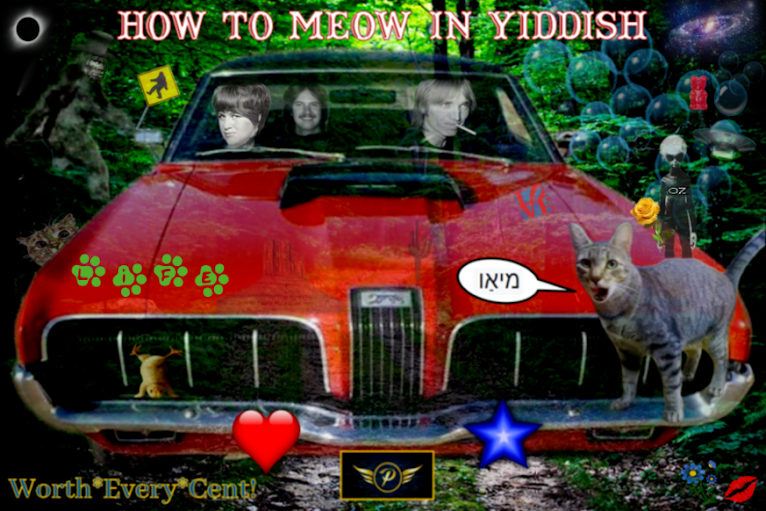The burnt down Squatch huts can attest to her attempts. Alas.
One day Hiram followed his nose to a source of intriguing, delicious scents. Coming out of the deep eastern forest, deciduous, still sporting some brightly colored leaves, he observed that the local Tribal types were having dinner with the newcomers. As in all apocryphal stories, all was peace and concord.
He invited himself to the party, and the rest is history. You know how history is.
He mingled and chatted. He ate a whole wild turkey, spit roasted, with corn, beans and pumpkin pudding made with spices. No one seemed to mind him at all. He carried a turkey home to Selma. He suggested that she get to know the wives of the humans back in what would be town.
OK, he didn’t chat really. He didn’t know any human languages. But everybody was happy together anyhow.
It enlarged his imagination. He began to formulate dreams and desires. He saw possibilities. He thought maybe Selma could learn how to roast meat, and maybe grow some corn. And she did! By the end of her life, she could even make biscuits and pie!
Hiram and Selma brought forth children. Larry, Rose, Porky, Agnes, and Roger. Our tale continues with Porky.
Porky never fit in with the locals, human or Squatch. He had a nose for adventure and a questing nature. He was also rather fat, and always hungry. He thought he would head out west just to see how things were out there. He didn’t know after all. Neither did anyone else.
Porky reached a great river and stopped there. The hunting was good, and the fish were huge. He met a young lady of the correct species, named Elise. She taught him how to swim, well, actually, float. Together they moved to the opposite bank. It took all day to get over there. The hunting was just as good on that side.
Porky and Elise learned how to make better huts from some broadminded French trappers who worked up and down the river, staying in little houses when the weather was too rough, and they weren’t going up and down on their rafts.
Their son, Samuel, was also of a curious nature. He thought that if going west was good enough for his parents, why, it was good enough for him. He had heard the tale of the westward migration many times and heartily approved.
Now, Samuel was extremely tall. In fact, he was the cause of so many stories about giants in the old days. Just like Neil says, he walked like a giant in the land! He was ten feet tall and blond all over. His feet were twenty inches long and ten inches wide.
Samuel settled in the great grasslands that seemed to go on forever. There he feasted on bison and prospered. He met Giselle there and they made a house semi-underground using sod. That’s what was going for building material. They both lived to be very elderly.
Samuel begat Ernest. Earnest was born serious. Not much of a sense of humor in that boy. But he also had the westward bug. By then it was a Hiram dynasty tradition to keep heading west. Therefore, he left his parents and sibs and traveled to the desert lands. He stayed there for a few years, but thought there had to be more, so he kept going always westward. In the scablands of eastern Washington he met a young thing who also liked to travel. Her name was Mary Louise. They were both dark furred and taciturn, but not with each other.
They walked and walked. Over the great mountain range they walked, through snow, fog and rain, coming at last to the great forest of the Pacific Northwest. This seemed good to them, and besides Puget Sound was there and beyond that, the ocean, so they had to stop.
The hunting and fishing were good. The climate was mild, if a little boring. The local Natives were broadminded about Cryptids and didn’t chase them around like the later European descendants were prone to doing.
Earnest and Mary Louise had eight children, but the first was Ralph. He was a fine fellow from the start and destined for greatness. Anyone could have seen it. He almost had a star on his forehead, it was so obvious.
And there history meets the story of Ralph, the king of the Mt. Baker-Snoqualmie National Forest.
And every word is as true as the writer knows how to make it!
It's mostly pertinent!



.jpg)
%20(1).jpg)
.jpg)
.jpg)


.jpg)




No comments:
Post a Comment